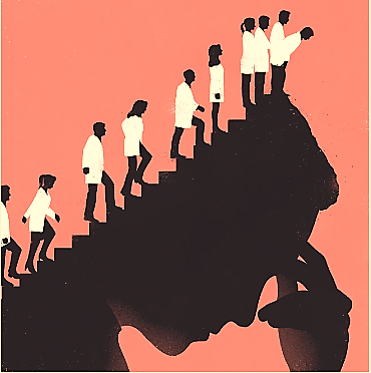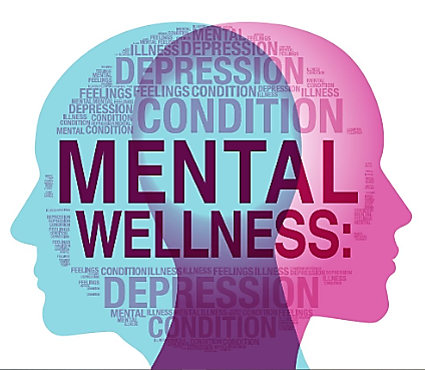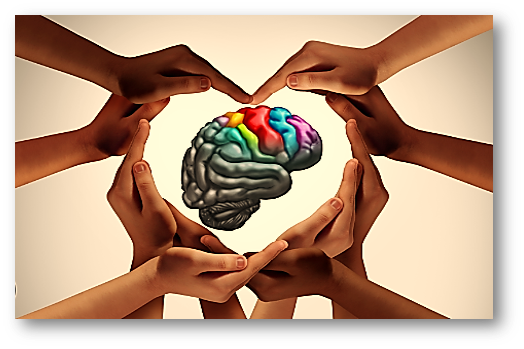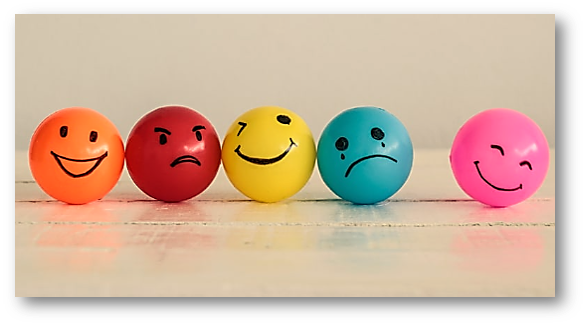
HUMAN BRAIN
The human brain is the central organ of the human nervous system, and the spinal cord makes up the central nervous system. The brain consists of the cerebrum, the brainstem, and the cerebellum. It controls most of the body’s functions, including movement, speech, thought, memory, and sensation. The brain is the most complex organ in the human body and is responsible for all of our thoughts, actions, and behaviors. It is made up of more than 100 billion nerve cells (neurons) and trillions of supportive cells called glial cells. The brain is the command center for the body and receives input from the senses (such as seeing, hearing, and touching), processes this information, and then sends output to the muscles and organs. Mental health.
HUMAN BRAIN AND MENTAL HEALTH

Mental health refers to a person’s overall emotional and psychological well-being. It is important for maintaining overall health and well-being, as well as for achieving personal and professional success. The brain plays a critical role in mental health, as it is the organ responsible for controlling and regulating the body’s mental and emotional processes. Mental health disorders, such as depression, anxiety, and schizophrenia, can have a significant impact on the brain. These conditions can alter brain function and structure, and can also lead to changes in behavior and cognition. Treatment for mental health disorders often involves a combination of medications and therapies that are designed to address the underlying causes of the disorder and help individuals manage their symptoms.
It is important to prioritize and maintain good mental health, as it can have a significant impact on overall well-being and quality of life. This may involve practicing self-care, engaging in activities that promote emotional and psychological well-being, and seeking support from mental health professionals when needed.
MENTAL HEALTH PROBLEMS IN THE WORLD

Mental health problems are a growing concern worldwide, with an increasing number of people experiencing mental health issues in recent years. According to the World Health Organization (WHO), one in four people will be affected by mental or neurological disorders at some point in their lives.
Mental health problems can affect people of all ages and from all walks of life. Some specific trends and statistics related to mental health include:
- Anxiety disorders are the most common mental health problem globally, affecting about 4% of the global population.
- Depression is the leading cause of disability worldwide and affects about 300 million people.
- The prevalence of depression increased by about 18% between 2005 and 2015.
- Substance abuse disorders, including alcohol and drug addiction, affect about 10% of the global population.
- The prevalence of suicide has increased by about 60% in the past 45 years, and it is the second leading cause of death among 15-29-year-olds.
It’s important to note that these statistics may vary depending on the region and population being studied. It is clear, however, that mental health problems are a significant concern that needs to be addressed.
“THERE IS A CRACK IN EVERYTHING, THAT’S HOW THE LIGHT GETS IN”

There are a few different ways you can assess and analyze your own mental health:
Keep track of your mood and emotions:
Pay attention to how you feel on a daily basis and try to identify any patterns or changes in your mood. You can use a journal or a mood tracker to help you keep track of your emotions.
Reflect on your thoughts and behaviors:
Notice any negative or unhealthy thought patterns, such as excessive worry or self-doubt, and pay attention to any behaviors that may be harmful or unhealthy, such as substance abuse or avoidance of social situations.
Seek feedback from loved ones:
Talk to people you trust about how you’re feeling and ask for their honest feedback. They may have noticed changes in your behavior or mood that you haven’t.
Consider consulting a mental health professional:
If you’re struggling to manage your emotions or are experiencing significant distress, it may be helpful to seek support from a mental health professional. They can help you identify any underlying issues and develop strategies to improve your mental health.
It’s important to remember that seeking help for mental health issues is a sign of strength and courage, and it can be an important step toward improving your overall well-being.
HEY!! IT’S OKAY…
People facing mental stability issues may experience a range of reactions, including:
- Changes in mood and emotions: People may experience swings in their mood or emotions, such as feeling low or depressed, anxious or stressed, or irritable or angry.
- Changes in behavior: People may exhibit changes in their behavior, such as withdrawing from social activities, experiencing difficulty with daily tasks or responsibilities, or engaging in risky or unhealthy behaviors.
- Changes in cognition: People may experience changes in their thinking, such as difficulty concentrating or making decisions, or having negative or distorted thoughts.
- Physical symptoms: People may experience physical symptoms as a result of mental health issues, such as changes in appetite or sleep, fatigue, or physical discomfort.
It’s important to note that these reactions can vary greatly from person to person, and may also change over time. It’s also important to remember that seeking help for mental health issues is a sign of strength and courage, and can be an important step towards improving overall well-being.
If you know someone who is struggling with mental trauma or anxiety, there are a few things you can do to help:
Be there for them:
Offer your support and let them know that you are there for them. This can be as simple as listening to them and being present, without trying to fix their problems or offer advice.
Encourage them to seek professional help:
If the person is struggling to cope with their emotions or is experiencing significant distress, it may be helpful for them to seek support from a mental health professional. Encourage them to speak with a therapist or counselor and offer to help them find resources or make appointments.
Help them develop coping strategies:
There are many strategies that can help someone manage their anxiety or trauma, such as relaxation techniques, exercise, or mindfulness practices. Encourage the person to try out different strategies and find what works best for them.
Be understanding and patient:
Recovery from mental trauma or anxiety can be a long process, and it’s important to be understanding and patient with the person. Encourage them to take things one day at a time and be there to support them through their journey.
It’s important to remember that seeking help for mental health issues is a sign of strength and courage, and can be an important step towards improving overall well-being.
A POSITIVE ATTITUDE CAN GIVE MORE POWER TO SOMEONE!!!
If you’re trying to console someone who is experiencing mental issues, it’s important to be understanding and non-judgmental. Here are a few things you can say to show your support and offer comfort:
- “I’m here for you.”
- “It’s okay to not be okay all the time.”
- “You’re not alone in this.”
- “I believe in you and your ability to get through this.”
- “I’m here to listen if you want to talk.”
- “Is there anything specific that I can do to help you right now?”
- “You are strong and capable of overcoming this challenge.”
- “I care about you and your well-being.”
It’s important to remember that every person is different, and what might be comforting for one person may not be for another. The most important thing is to be there for the person and offer your support in a way that feels genuine and compassionate.
EVERY DAY IS A STRUGGLE!!… SO KEEP MOTIVATED!!!

There are several changes you can make in your life that can help prevent or reduce the risk of mental health problems:
Practice self-care:
Taking care of your physical and emotional well-being is important for preventing mental health issues. This can include activities like getting enough sleep, eating a healthy diet, and engaging in regular physical exercise.
Manage stress:
Chronic stress can contribute to the development of mental health problems, so it’s important to find ways to manage stress effectively. This can include activities like meditation, yoga, or exercise, or seeking support from a therapist or counselor.
Build a supportive network:
Having a strong network of friends and loved ones can provide emotional support and help prevent mental health issues. It’s important to prioritize building and maintaining relationships with people you trust and who are supportive.
Seek help when needed:
If you’re struggling with your mental illness, it’s important to seek help from a mental health professional. Therapy and medication can be effective in managing and treating mental health problems.
Engage in activities you enjoy:
Doing things you enjoy and that bring you joy and fulfillment can help improve your mental health and prevent the development of mental health problems. This can include hobbies, sports, or other activities that bring you happiness.
KEYWORDS: Autism, Bipolar disorders, Conduct disorders, sadness, sorrowfulness, grief glom, mournfulness
REFERENCES:
- Gaebel, W., Zäske, H., & Baumann, A. E. (2006). The relationship between mental illness severity and stigma. Acta Psychiatrica Scandinavica, 113, 41-45.
- Kasow, Z. M., & Weisskirch, R. S. (2010). Differences in attributions of mental illness and social distance for portrayals of four mental disorders. Psychological reports, 107(2), 547-552.
- Svensson, B., & Hansson, L. (2016). How mental health literacy and experience of mental illness relate to stigmatizing attitudes and social distance towards people with depression or psychosis: A cross-sectional study. Nordic journal of psychiatry, 70(4), 309-313.

1. Here title is in two sentences. Second sentence should be ” Trust, You will be well communicative ” rather than ” you can be Un-Silent for sure”…. In my opinion it has a weightage…
2. Always avoid to live in loneliness, and try to meet friends, relatives and start conversations on different topics to get thier views to justify our own opinions.
3. Otherwise as an alternate option, at the end of the day, it needs to be sit alone and start questioning ourselves and answer the questions, one by one confidently by self discussion, in order to improve the confidence.
4. It is better to study the valuable books to gain the knowledge, informations and awareness. This will help to improve your personality and raise the confidence level as well.
Thanks
Pingback: EVERY BEHAVIOR IS A CHOICE, BE CONSCIOUS!! - Life Biologs